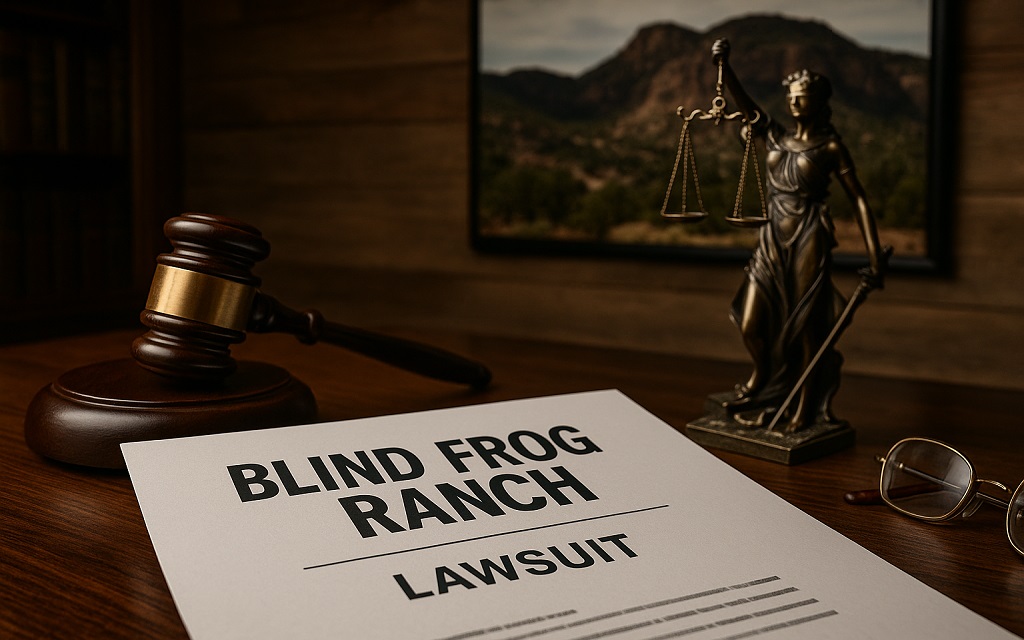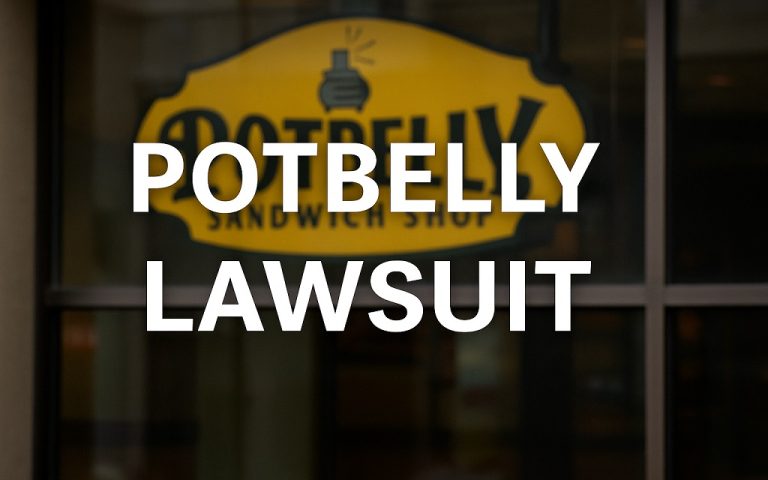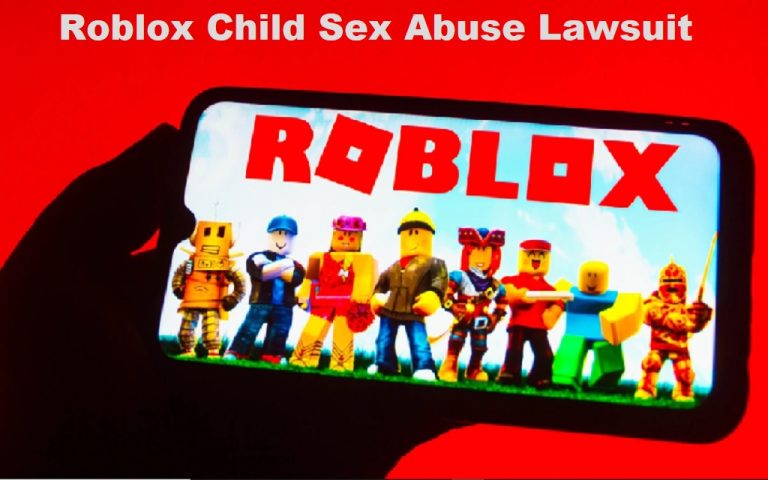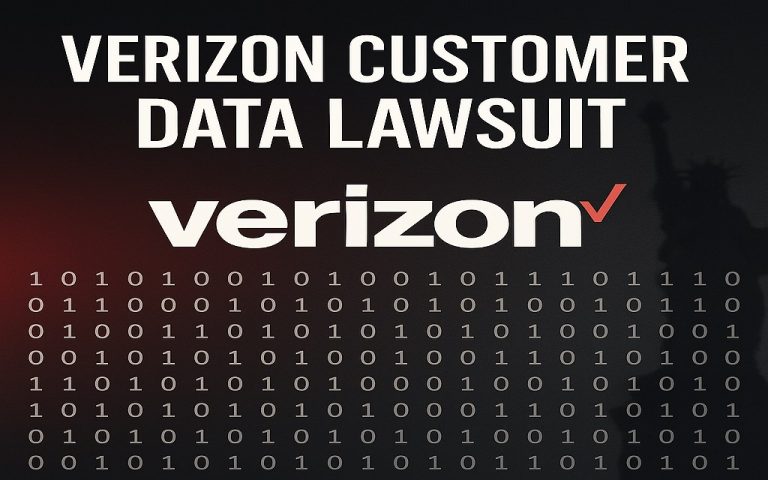What happens when a treasure hunt turns into a legal firestorm? The Blind Frog Ranch lawsuit has done just that—pulling real estate law, environmental rules, and reality TV drama into one wild legal showdown. You’ve seen the tunnels. You’ve heard the legends. However, did you anticipate that it would end up in court?
What started as a mysterious dig in the Uintah Basin of Utah has turned into a tense court battle. Due to claims of illegal excavation, missing licenses, and ambiguous mineral rights, Blind Frog Ranch and its owner, Duane Ollinger, are in the news.
Is the government going too far? Or was the show over the top? This article provides all the information you require regarding the 2025 Blind Frog Ranch lawsuit—and what might occur next—regardless of whether you are a die-hard fan of the show or are simply interested in the facts.
What Is the Blind Frog Ranch Lawsuit?
The lawsuit centers on Blind Frog Ranch, a property in Utah owned by Duane Ollinger. Local agencies and environmental groups claim Ollinger violated excavation laws. The ranch allegedly operated without the required permits. Officials also raise concerns about public safety and environmental damage.
Blind Frog Ranch gained attention from its reality TV show. The series followed treasure hunts, underground digging, and speculation about ancient artifacts. However, authorities say the entertainment masked real legal issues. Large-scale excavation is prohibited by Utah law without a license. Heavy equipment or explosives need rigorous clearances. Court records show the ranch did not follow these rules.
The lawsuit focuses on two central claims. First, the excavation took place on protected land. Second, the owners lacked state and county permits; some filings also mention possible overlap with federal land. The Bureau of Land Management (BLM) would be involved if such were the case. Penalties for federal offenses are harsher.
You should know that Ollinger denies these claims. He says he owns the land and followed the law. According to his legal team, state officials went too far. Proponents assert that the performance increased local tourism and brought Utah international recognition. Some critics disagree. They claim the show promoted reckless digging under the guise of historical preservation.
This lawsuit raises significant questions. Can private landowners dig for treasure without oversight? Where does surface ownership end and mineral ownership begin? Does a reality show excuse breaking land-use laws?
The answers matter beyond one ranch. They test how states balance property rights, environmental safety, and public trust. This case is about more than TV ratings. It’s about who controls the land—and what lies beneath.
Who Owns Blind Frog Ranch and Why Is That Being Challenged?
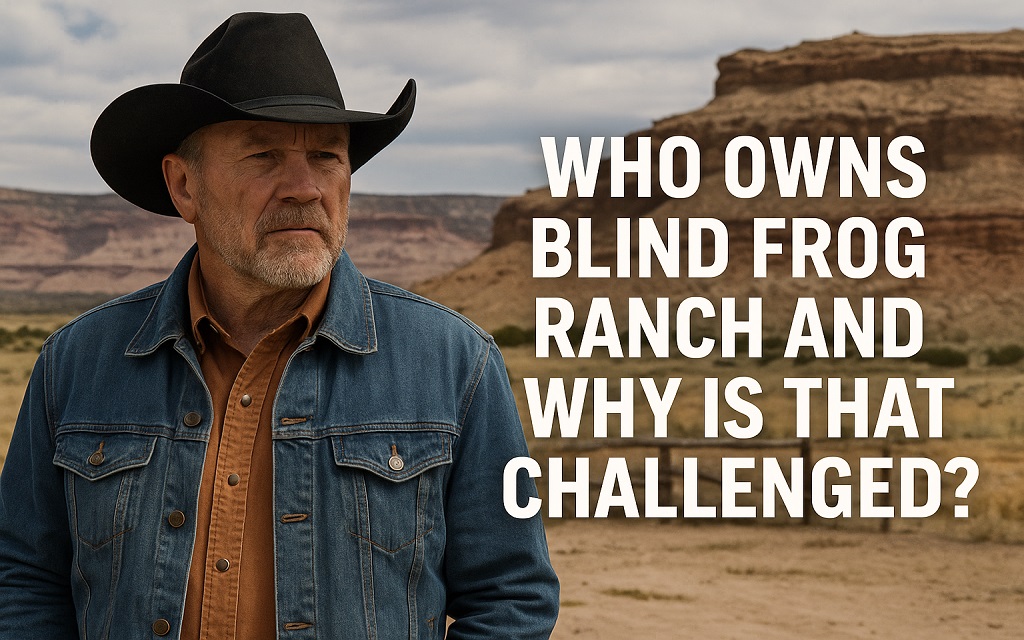
Duane Ollinger owns the ranch. He bought the land with a goal—to find what he believes is a hidden treasure. Property records list Ollinger as the surface owner. That means he holds the deed to the land itself. But in Utah, surface rights and subsurface rights are separate. That legal split drives much of this lawsuit.
Surface rights give someone control over the topsoil. You can build a house or grow crops. Subsurface or mineral rights allow someone else to dig underground. They can extract oil, gas, gold, or other resources. In some cases, the state or federal government owns these rights.
Reddit users and legal observers say this confusion created trouble. Ollinger may not hold the rights to explore underground. If he drilled into protected areas, he could face civil and criminal penalties.
A bigger issue is access. Even if Ollinger holds both surface and mineral rights, he still needs permits. Utah law requires licenses for excavation. Counties and agencies must review plans, safety methods, and environmental risks. If Ollinger skipped that process, his ownership claim weakens.
Supporters say ownership should mean complete control. They argue that private land should not be regulated like public parks. But opponents push back. They say land near public waterways or cultural zones must be protected.
Ownership is not absolute. The Blind Frog Ranch lawsuit may prove that. Even if Ollinger has a title deed, he must follow land-use law. This case could set a precedent for future landowners chasing legends.
What Are Mineral Rights vs Surface Rights in Utah?
Utah law splits land rights into two parts: surface and mineral. Many buyers are unaware of this until problems arise. You can own the top of a hill but not the gold beneath it. That legal gap now affects Blind Frog Ranch.
Surface rights cover visible land. Owners can build fences, plant crops, or dig shallow wells. But mineral rights include everything below. Oil, gas, coal, precious metals, and even caves count as mineral assets. These rights can be sold, leased, or owned by others.
Ollinger claims to own the whole property. But the lawsuit challenges that. The state says he lacked permits to access mineral zones. That means even if he believed he held mineral rights, he had no permission to act.
Utah’s Division of Oil, Gas, and Mining sets rules. Anyone using explosives or heavy gear must apply. That applies even on private land. Deep drilling without a license breaks state law. Some legal filings also question whether parts of the ranch fall under federal jurisdiction. If that’s true, BLM rules apply—and those are stricter.
This lawsuit will likely define how Utah interprets these rights. Courts may review the land deed. They’ll ask: who holds which rights? What kind of activity happened? Did it cross legal boundaries?
Understanding these distinctions matters. Many ranch owners in Utah and the West hold land with split titles. This case may force new laws, new limits, or new permit systems.
You should follow this case if you own rural land. It may affect what you can and cannot do underground.
Did Blind Frog Ranch Violate Environmental Permit Laws?
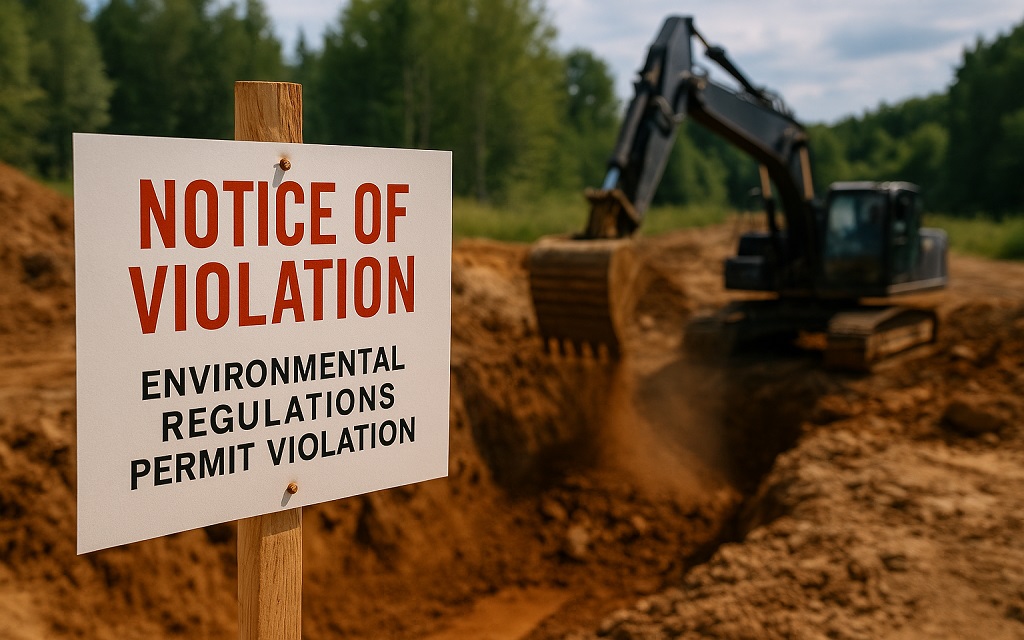
Yes, according to the state documents. According to officials, Blind Frog Ranch used heavy equipment and constructed tunnels without obtaining the required permits. Utah law requires a full environmental review before those actions.
The Division of Water Quality flagged concerns. They cited risk to underground aquifers. Explosives could shift soil layers. Metal runoff could enter nearby streams. Any damage could harm public water sources.
Duane Ollinger and his team deny wrongdoing. They say their work stayed within bounds. But officials point to drone footage and local tips. Reddit users also shared photos showing deep excavation and drill rigs.
Environmental groups joined the lawsuit. They argue the show encouraged unsafe practices. Viewers saw tunnels lit with gas lamps, unstable rock walls, and untested soil. These scenes raise safety and legal red flags.
Even if no harm occurred, the lack of a permit is enough. The law treats unapproved digging as a violation. Penalties range from fines to license suspension. In rare cases, the state can shut down an entire property.
Some parts of Blind Frog Ranch may lie near tribal or archaeological sites. That raises another layer of protection. If any remains or artifacts were disturbed, federal laws apply. That includes the National Historic Preservation Act and the Native American Graves Protection Act.
So far, there’s no public proof of those violations. But if any turn up, the case could shift from state to federal court.
Environmental permits exist to protect shared resources. If Blind Frog Ranch broke those rules, the state must act. If it didn’t, Ollinger may win a robust landowner rights case.
Is Blind Frog Ranch on Federal Land Controlled by BLM?
One of the lawsuit’s most contentious issues is this. According to some reports, there may be some overlap between Blind Frog Ranch and Bureau of Land Management (BLM) properties. If that’s true, then Ollinger’s excavation crosses a legal boundary.
In the United States, BLM owns more than 245 million acres. It oversees surface operations, minerals, and public lands. The ranch is located close to Uintah County in Utah, which is under the agency’s jurisdiction.
If even a portion of Blind Frog Ranch touches federal land, Ollinger needs federal permits. That includes environmental review, impact studies, and formal lease agreements. Mining without those is illegal. So it is a disturbing landmark for cultural or historical protection.
BLM records are not public in this case. However, several Reddit posts mention GPS data that shows overlaps. These claims are not verified yet. But if court filings confirm federal oversight, that changes everything.
Federal cases take longer. They also come with higher fines. BLM violations may lead to land use bans, criminal charges, and seizure of equipment. Any treasure or resource taken from federal ground becomes government property.
Ollinger’s defense says his land is private. They insist BLM has no jurisdiction. Until a court checks maps, deeds, and coordinates, the question stays open. But it’s a key issue. Federal law is stricter than state law. If the ranch crosses that line, the case grows more serious.
You should understand this. BLM involvement could shift this from a local permit case to a federal mining violation. That would raise the stakes for everyone involved.
What Role Do Local or State Laws Play in This Lawsuit?
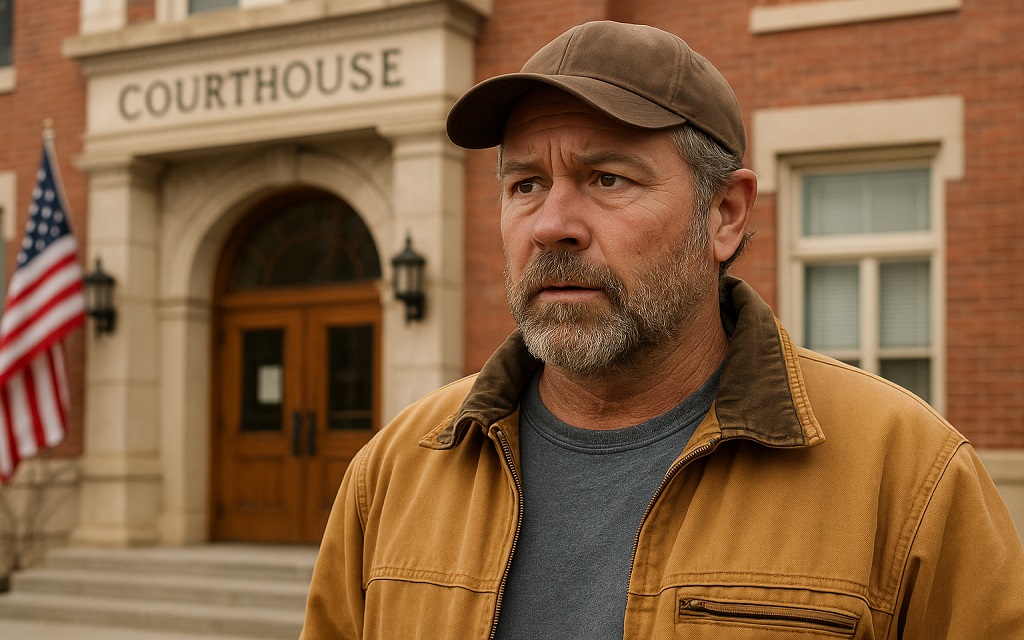
Local and state laws form the foundation of this lawsuit. Even if the land is private, Utah law requires permits for underground work. Counties set zoning codes. State agencies issue excavation and mining licenses. These rules apply to every landowner—no matter how famous.
Uintah County zoning laws require notice before using explosives. They also demand inspection for any deep digging. Utah’s Division of Oil, Gas, and Mining issues permits for underground access. That includes soil disturbance, boreholes, and tunnel work.
Records show Blind Frog Ranch did not submit complete applications. Some say the ranch failed to notify officials about its activities. Others say the site bypassed inspections. Both actions break the law.
The state also protects water systems. Regulations about water quality must be followed while excavating close to a natural spring or stream. It is a violation if chemical runoff contaminates public water. Utah can issue fines or demand shutdowns for these offenses.
Even if Ollinger has all land rights, he must follow these codes. Property ownership does not erase local law. States and cities have the authority to control the use of land. That includes noise, danger to neighbors, and environmental risk.
Some lawmakers support the ranch. They say the lawsuit goes too far. They argue it’s political or overregulated. But courts rely on written laws, not opinions.
This case may set a precedent. If Ollinger wins, landowners may gain more freedom. If the state wins, expect tighter enforcement statewide.
Is the Blind Frog Ranch Reality Show Exaggerating the Legal Dispute?
Many fans ask the same thing. Is the lawsuit real—or part of the show?
Blind Frog Ranch became famous through its reality TV series. The show mixes science, legend, and mystery. It features treasure hunts, underground chambers, and strange finds. But viewers have noticed a pattern. No discoveries are ever confirmed. Each season ends with new questions, not answers.
Critics say the show may stretch the truth. Reddit posts claim that some scenes are scripted. Others question how much of the “digging” really happened. If the lawsuit is real, then illegal activity was televised.
That raises legal risks. Broadcasting unpermitted excavation may hurt the defense. It shows intent. It also proves the scale of the work done. Some legal experts say the show could serve as evidence in court.
Ollinger has not commented on whether the show is staged. But the lawsuit is real. State records confirm that permits were missing. Environmental groups filed legal complaints. This is not just TV drama.
Still, the show complicates the case. It blurs facts and fiction. Fans may believe all of it. Judges must distinguish between what was aired and what actually happened. Lawyers on both sides are likely reviewing episodes for clues.
This part of the lawsuit tests a modern issue—how reality TV affects law. Can a show hurt a legal case? Can editing protect the producers? These are open questions.
For now, one thing is clear. The lawsuit exists outside the screen. Even if the treasure does not.
How Long Could This Legal Battle Last?
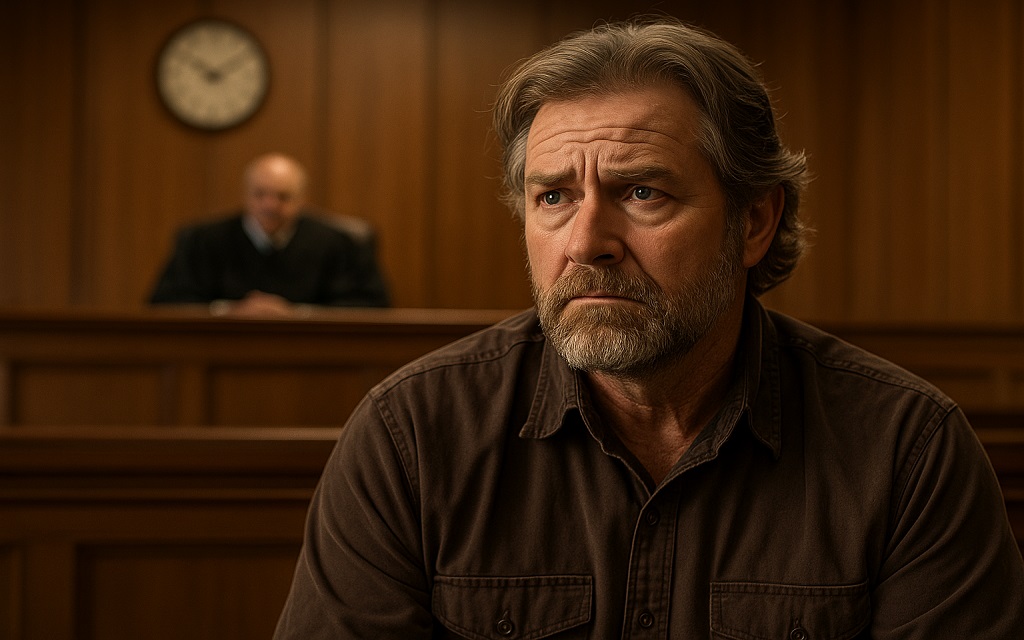
This type of lawsuit could last several years. Land disputes move slowly. Add in environmental claims and possible federal overlap, and the case grows even more complex.
The case is currently pending in a Utah district court. The filings started in late 2023. Early hearings focused on ownership claims. The next stage will examine permits and excavation records.
If BLM gets involved, the case may transfer to a federal court. That takes more time. Federal cases require discovery, review of land maps, and environmental assessments. Each phase adds months.
Ollinger’s team may try to settle. That could mean paying fines, applying for retroactive permits, or stopping all digging. However, if the state demands more decisive action, the case will proceed.
Court calendars show that land use cases often take 18 to 36 months. If appeals happen, add another year. Lawsuits with environmental claims or public interest concerns move more slowly. Agencies must provide reports, host hearings, and allow comments.
So far, no trial date has been set. No rulings have been made. The case is still in its early stages. That means updates may come slowly.
If you follow this case, expect a long wait. The legal system moves on facts, not fame.
What Are the Public Reactions and Online Claims?
Public opinion splits sharply. Some back Ollinger. Others call for stronger oversight.
Fans of the show say Ollinger brings excitement to Utah. They argue that his land should be his to use. They point to the show’s ratings and tourism impact. Supporters also believe the lawsuit is a political move. They say the state is punishing success.
Opponents take the other view. They say the ranch broke clear laws. They cite unpermitted explosives, damaged land, and unsafe tunnels. Some want the show canceled. Others demand Ollinger be fined or arrested.
Reddit discussions reflect this divide. Some users post maps and legal references. Others post rumors or opinions. Many agree on one thing: the case raises significant questions about land use and law.
Legal experts caution against judgment too early. They say the court must decide, not the crowd.
Still, the lawsuit is now part of the public debate. The show, the ranch, and the case all feed into each other. Each update sparks more online posts.
You should follow trusted sources for updates. Court filings, legal analysts, and government notices provide facts. Social media provides opinions. Both matter. But they are not equal.
What Happens Next in the Blind Frog Ranch Lawsuit?
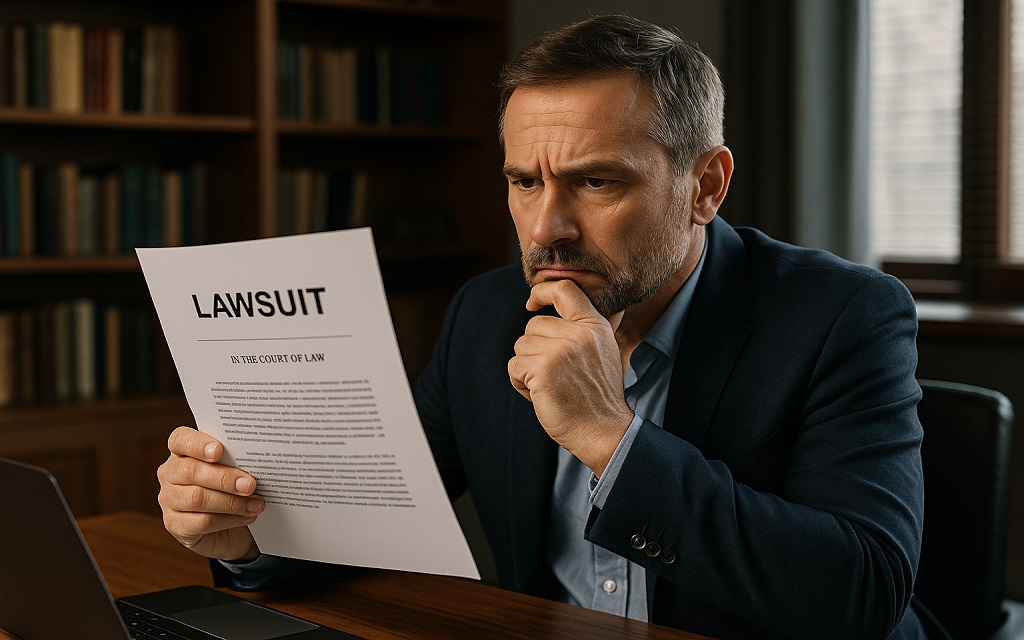
The following steps include discovery, review of permits, and map verification. Lawyers will submit motions. Experts may testify about environmental damage and land rights.
The state will try to prove that Blind Frog Ranch broke the law. That means showing clear records of unpermitted activity. It also means proving damage or risk.
The defense will argue that Ollinger acted in good faith. They will claim ownership, limited harm, and no criminal intent. They may say the case is political.
A judge may hold hearings in late 2025. If both sides present full arguments, a trial could follow. If not, a settlement may close the case.
The future of the show also depends on this lawsuit. If the court bans excavation, production may stop. If Ollinger wins, expect more digging—and more episodes.
This case blends law, land, media, and mystery. You should watch closely. Its outcome could shape Utah’s future land rules.
Legal Timeline: Blind Frog Ranch Lawsuit
| Date | Event |
|---|---|
| Dec 2023 | Legal complaints filed by Utah state agencies and environmental groups |
| Jan 2024 | Ollinger’s legal team files a response denying wrongdoing |
| Mar 2024 | Pre-trial hearings begin in the district court |
| May 2024 | Discovery phase starts; permit records and GPS maps submitted |
| Jul 2024 | Court orders environmental review of the site |
| Sep 2024 | Experts submit reports on underground damage |
| Dec 2024 | Motion filed to review federal land involvement |
| Feb 2025 | Possible referral to federal court if BLM jurisdiction is confirmed |
| TBD 2025 | Trial date expected if no settlement is reached |
FAQs
Who actually owns Blind Frog Ranch?
Duane Ollinger owns Blind Frog Ranch. He purchased the land in Utah to search for hidden treasure.
Did they pull the box out at Blind Frog Ranch?
No, they have not successfully pulled the box out. The show hinted at its presence but left the outcome unresolved.
Who was spying on Blind Frog Ranch?
The show suggested that unknown drones or individuals were spying on the ranch, but no identity was confirmed.
Did they ever find anything at Blind Frog Ranch?
No confirmed discoveries have been made. The show often teases finds but never verifies solid evidence.
What was in the wooden box at Blind Frog Ranch?
The contents of the wooden box remain unknown. The show never revealed or retrieved it on screen.
Final Thoughts
This Blind Frog Ranch lawsuit blends modern law, ancient land, and digital drama. Blind Frog Ranch started as a TV show. It now stands at the center of a legal battle over property rights, environmental safety, and federal authority.
Utah landowners, legal experts, and show fans all watch closely. Each court date brings new questions. Can a ranch become a mine without permits? Does the law change when the cameras are rolling?
You should follow this case to learn how law adapts to fame, property, and the mysteries buried below.
Disclaimer: This article provides a general overview of the Blind Frog Ranch lawsuit, based on publicly available information, and is intended for informational purposes only. It is not legal advice.
Musarat Bano is a content writer for JudicialOcean.com who covers lawsuits, legal news, and general legal topics. Her work focuses on research-based, informational content developed from publicly available sources and is intended to support public awareness. She does not provide legal advice or professional legal services.

